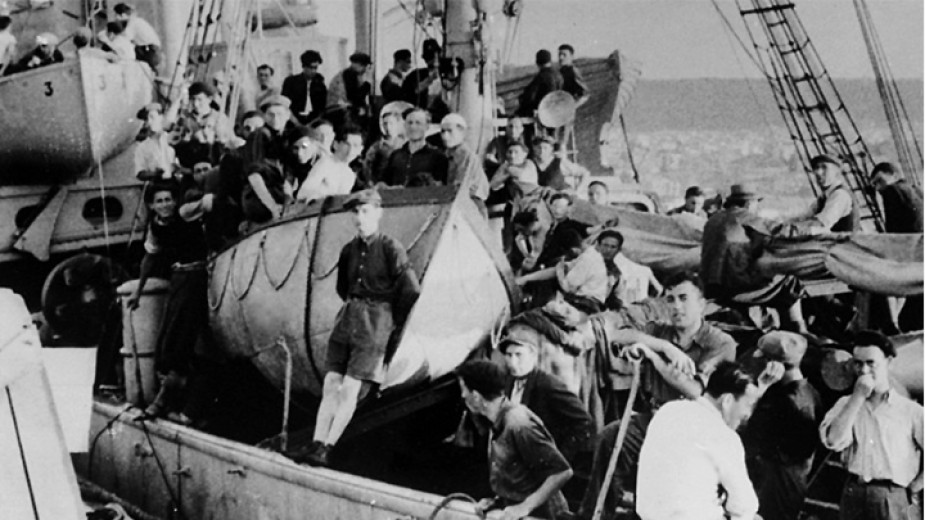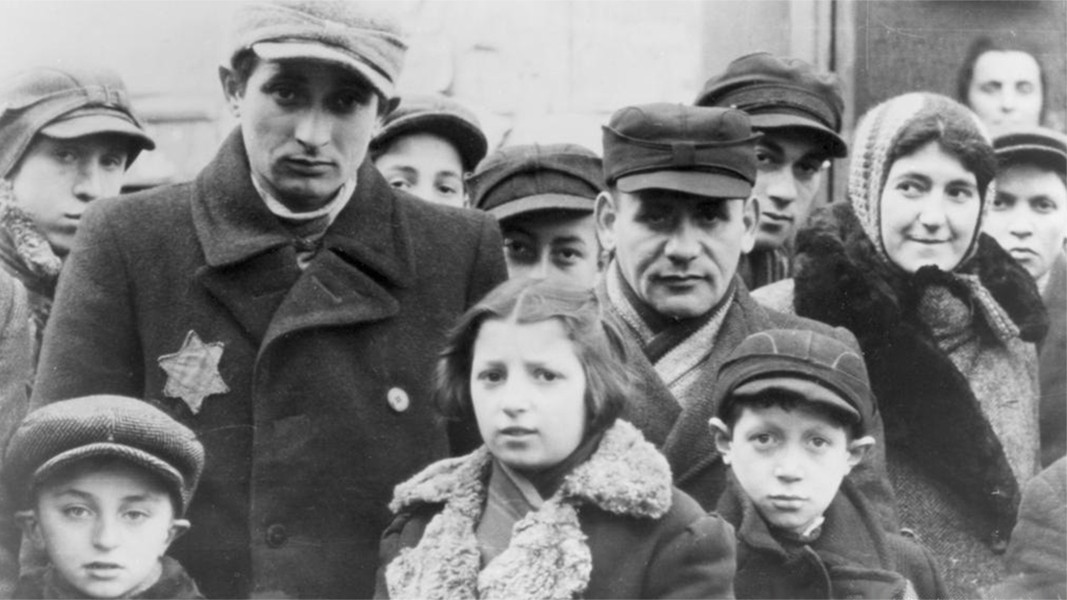
The greatest suffering of the 20th century was World War II. A terrible page of its history is the genocide of millions of Jews during the Holocaust. The blood-stained lessons of the last century lead to the signing of the Geneva Conventions for the Protection of Civilians in Time of War and the Universal Declaration of Human Rights of December 10, 1948. The document emphasizes that human rights and freedoms are given by birth and state authorities must guarantee equality, protection from violence and ill-treatment affecting human dignity.
War, though, is always at odds with law. It is not a humanism contest. But even in times of war, in order to limit the suffering and loss of human life, everyone is obliged to be guided by the so-called law of the heart - Caritas, which is mandatory at least for refugees.

Based on the Caritas principle, during the period 1939-44, the Kingdom of Bulgaria issued thousands of visas to Jews fleeing the Nazis in Europe. This little researched topic is the focus of the latest documentary collection of the Institute for Historical Studies at the Bulgarian Academy of Sciences. Its director, Prof. Daniel Vachkov, says that in the book "The Bridge of Salvation - Transit of Jews through Bulgaria during the years of the Second World War" the documents clearly distinguish two periods. One is when Bulgaria was neutral and was trying not to be involved in the war, and thousands of Jews passed through the country to the Middle East with Bulgarian transit visas until the spring of 1941. The second period, when Bulgaria was forced, under the threat of full occupation, to enter the war - then it continued to issue these saving visas for the Jews, but on a more limited scale.

"In this situation, we have to say that Bulgaria had to maneuver between many factors, and despite this, it managed to conduct its own policy regarding this emerging terrible problem - the Jewish genocide, which was not easy. In the first period of neutrality, Bulgaria was a very active transit country for Jewish refugees who were already trapped in the Nazi domination of Europe. Jews passed through Bulgaria mainly from Central Europe - from the Czech Republic, Hungary, Romania, to a lesser extent from Poland. These refugees arrived either by train or by ship on the Danube. They settled for some time in the Bulgarian ports after having received the necessary transit visa and their transfer to Palestine was organized with different ships.”
The colonial dramas of Great Britain in the Middle East proved to be an obstacle for Jewish emigration through Bulgaria and Turkey. British diplomacy actively protested and hindered the transit of Jews. А similar tragic scenario unfolded regarding the attempts of the Swiss Red Cross to evacuate 4,500 Jewish children and 500 accompanying adults through Bulgaria. The organized disclosure of the information about the secret negotiations in the media achieved its goal and they failed, says Prof. Vachkov.
"These negotiations were conducted at the highest level, by the Minister of Foreign Affairs. Note the time when these negotiations began and were conducted - at the end of 1942 and the beginning of 1943, when it was precisely this terrible pressure of Germany to deport the Jews. This shows that the government had an attitude towards the Jews that did not correspond to that of the Reich, and this can be seen from the documents”.
All the archival records are still missing in order to say with certainty what is the exact number of saved Jews who received Bulgarian transit visas, the historian explains, adding:
"It was a ticket to salvation for them. Obtaining this visa, they could pass, reach Turkey first and from there already travel to Palestine. During the whole war, bearing in mind the intensive transits of Jews by ship, especially until 1941-42, we also know of the tragedy with the ship "Struma"*, torpedoed by a Russian submarine, but we are talking about some 12,000 Jewish refugees about whom it’s been reliably proven that they passed through Bulgaria. Personally, I think, however, that in terms of visas, even more may be discovered and this number may reach 15,000. So, we are talking about a very important moment and a very important role of Bulgaria in an extremely critical situation during the Second World War."

The researcher considers it necessary to translate the collection into English. He is convinced that this will not be costly, because most of the new and rich archival sources used are in English, with the exception of the Bulgarian and German documents.
*The Bulgarian ship "Struma" departed from the Black Sea port of Constanța (on the territory of today's Romania, until 1919 - Bulgarian territory). After a technical problem, it reached Istanbul by tug. It remained blocked for 70 days by the British authorities, which did not allow it even to the Turkish coast. On 24 February1942 it was torpedoed 14 miles from the Bosphorus strait. 103 children, 269 women and 406 men - Romanian and Russian Jews - died.
On November 30, the Bulgarian Orthodox Church honors the memory of St. Apostle Andrew . In Bulgaria the saint is known as Saint Andrey and the folk holiday as Andreevden . Saint Andrew’s Day gives the start to the series of winter holidays..
The head of the statue of Tyche, the goddess of Philippopolis, has been discovered in the Episcopal Basilica in Plovdiv, said the head of the excavations Lyubomir Merdzhanov. According to him, this is an extremely rare artefact that has been awaited..
105 years ago, on November 27, 1919, a treaty was signed in the Parisian suburb of Neuilly-sur-Seine, officially ending Bulgaria's participation in World War I (1914-1918). Historians define the document as "another national..
On November 30, the Bulgarian Orthodox Church honors the memory of St. Apostle Andrew . In Bulgaria the saint is known as Saint Andrey and the folk..

+359 2 9336 661
